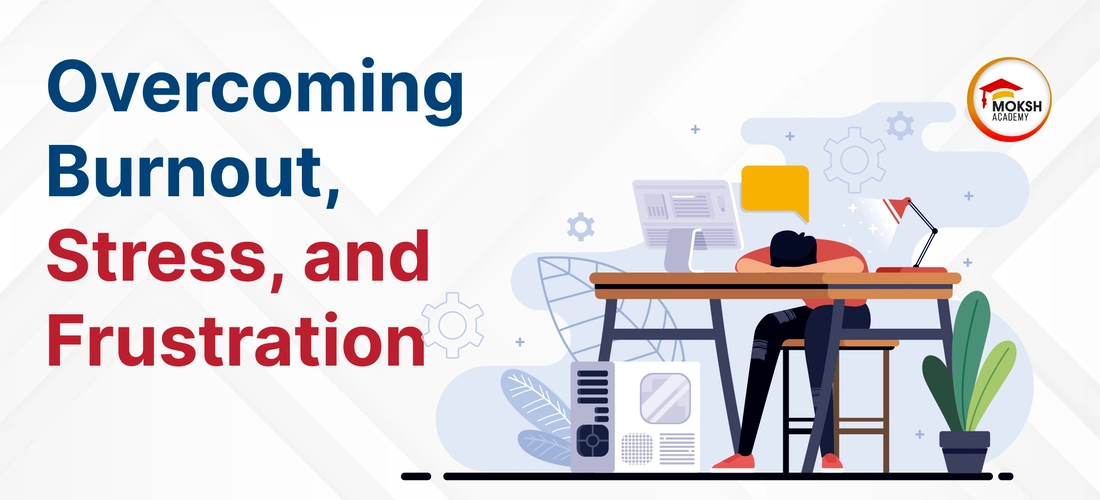
Introduction:
In the demanding world of medical education, the USMLE Step 1 stands as a significant milestone, assessing aspiring physicians' foundational knowledge and clinical reasoning skills. While this comprehensive exam is crucial for career advancement, it also presents a formidable challenge that can easily lead to burnout, stress, and frustration. The relentless pressure to absorb vast amounts of information, meet deadlines, and perform under intense scrutiny can leave even the most resilient individuals feeling overwhelmed and depleted.
1. Recognizing the Signs:
The first step toward addressing burnout, stress, and frustration is recognizing their tell-tale signs. Increased irritability, a decline in motivation, persistent fatigue, difficulty concentrating, and disrupted sleep patterns are just a few indicators that our internal resources are depleted. We empower ourselves to take action before the situation escalates by paying attention to these red flags.
2. Prioritizing Self-Care:
Carving out time for self-care is not a luxury but a necessity. Engaging in activities that nurture our physical and mental well-being is a powerful antidote to burnout. Regular exercise, nourishing meals, adequate sleep, meditation, and hobbies that bring joy can help replenish our reserves and foster a sense of well-being.
3. Setting Boundaries:
Learning to say "no" is a crucial skill for preventing burnout. Setting clear boundaries with work, relationships, and other commitments protects our energy and allows us to focus on what truly matters. Delegate tasks when possible, learn to delegate, and don't hesitate to decline requests that overextend your capacity.
4. Seeking Support:
Remember to appreciate the power of seeking Support from friends, family, or professionals. Sharing your experiences with others can provide relief and valuable insights. A trusted confidante can offer a listening ear, emotional Support, or practical advice.
5.Reframing Your Perspective:
Our thoughts and beliefs can significantly impact stress levels. We can cultivate more positive and resilient outlook by identifying and challenging negative thought patterns. Practice gratitude, focus on the present moment, and try to find humor in even challenging situations.
6. Disconnecting to Recharge:
Regularly disconnecting from technology is essential for mental clarity and peace. Prioritize screen-free time for relaxation and unwinding. Take a natural walk, practice mindfulness, or enjoy a good book.
7. Seek Professional Help from Mentors:
If you feel overwhelmed and unable to manage stress or burnout, seeking professional help with a mentor from Moksh Academy is a wise and courageous step. Counselors can provide confidential Support to guide you.
Connect with us
Conclusion:
The journey towards greater resilience and well-being requires a multi-faceted approach. By embracing self-awareness, implementing healthy habits, seeking Support, and practicing self-compassion, we can navigate the complexities of life with greater strength and composure. Prioritizing mental health is not selfish but a vital investment in your overall well-being and a more fulfilling journey through life.



